MercoPress. South Atlantic News Agency
Stories for July 2009
-
Tuesday, July 28th 2009 - 07:12 UTC
Less Bolivian gas production as Brazilian demand falls

Brazil has reduced its demand for Bolivian natural gas to 24 million cubic meters per day, prompting a drop in production, according to reports in the La Paz press.
-
Tuesday, July 28th 2009 - 07:10 UTC
Traffic in Panama Canal slowing down, reports administration
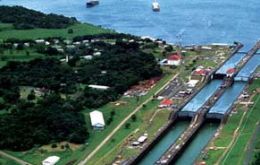
The number of vessels passing through the Panama Canal declined by 6.4% during the third quarter of Fiscal Year 2009, according to the waterway’s administration latest report.
-
Tuesday, July 28th 2009 - 03:41 UTC
Mercosur “lame and in misery” says Uruguayan presidential candidate
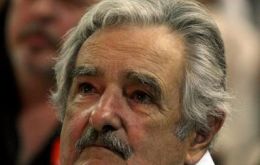
Mercosur is “lame and in misery”, said Uruguay’s ruling coalition presidential candidate Jose Mujica. As of last weekend Uruguay holds the six month rotating chair of the South American trade block which has as full members, Argentina, Brazil, Paraguay and Uruguay.
-
Tuesday, July 28th 2009 - 03:28 UTC
Brazil insists on the political angle of the Itaipú agreement

The Brazilian presidency advisor in international affairs Marco Aurelio García said that the agreement between Brazil and Paraguay regarding the surplus power from the shared Itaipú hydroelectric dam (operationally the largest in the world) is “most important” and helps to normalize bilateral relations.
-
Monday, July 27th 2009 - 22:20 UTC
Who can buy farmland in the Falklands – restrictions to be imposed?

A recent increase in the sale of Falklands farms to overseas buyers may lead to amendments to the Lands Non-residents Ordinance potentially to restrict who can buy farmland in the islands.
-
Monday, July 27th 2009 - 12:35 UTC
Brazil agrees to treble payment for Paraguay’s energy from Itaipú
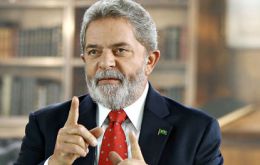
Brazil and Paraguay agreed over the weekend on an amicable solution to a decade long dispute over a hydro-electric dam on their shared border, with Brazil agreeing to triple the amount it pays its neighbour for energy.
-
Monday, July 27th 2009 - 12:31 UTC
Colombia’s Uribe re-re-election will be decided next September

Colombian President Alvaro Uribe postponed until September any decision on plans to seek a third term in office, the country’s former defence minister said week in Madrid.
-
Monday, July 27th 2009 - 12:23 UTC
Castro announces second belt tightening and calls on Cubans to work the land

On the 56th anniversary of the start of the Cuban Revolution, the message from President Raul Castro was not at all celebratory: the country must prepare for a second round of belt tightening because of the global financial crisis and promoting agriculture and food production is a “strategic priority”.
-
Monday, July 27th 2009 - 12:15 UTC
Fin whale wedged to the bow of cruise ship in Canada
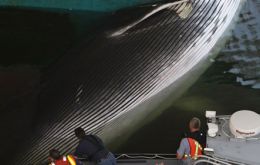
A rare whale was discovered wedged on to the bow of a cruise ship when it docked in a Canadian port Saturday morning. The 21 metres fin whale, a threatened species in Canada, was found when the Sapphire Princess docked at the Port of Vancouver, the cruise company said.
-
Monday, July 27th 2009 - 12:05 UTC
India launches first home built nuclear submarine
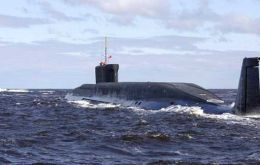
India formally launched its first home-built nuclear submarine on Sunday, joining a select band of five nations that have the capability to build the sophisticated weapons system. Prime Minister Manmohan Singh stressed that New Delhi had no aggressive designs nor meant to threaten anyone.
